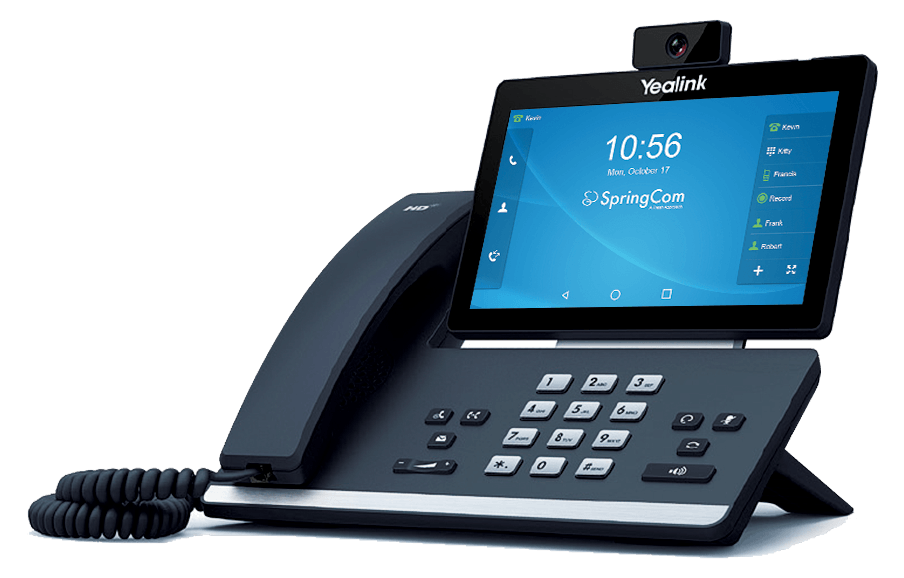The Evolution of Phone Solutions: From Landlines to VoIP
The world of phone systems has undergone an exceptional transformation over the years. In this article, we will certainly discover the trip of phone systems, beginning from the early telephone modern technology to the intro of electronic phone systems, and lastly, the development of VoIP. As we dive right into the future of phone systems, it ends up being obvious that VoIP is right here to remain, shaping the way we connect and connect in the electronic age.
Early Telephone Modern Technology
Very early telephone innovation's advancement played a crucial function in reinventing interaction methods. At the forefront of this technical improvement was Alexander Graham Bell, that is credited with creating the telephone in 1876. Bell's invention noted a considerable landmark in the history of communication, as it permitted real-time, long-distance conversations to happen.
The very early telephone systems depended on landlines, which were physical links between 2 telephones through a network of cords. These landlines made it possible for voice signals to be transmitted over long distances, bringing people more detailed with each other and helping with instant interaction. While the preliminary telephone systems were restricted in scope and accessibility, they laid the structure for the development of advanced interaction technologies in the future.
Among the essential innovations in very early telephone innovation was the intro of the switchboard system. The switchboard enabled several telephones to be linked to a central exchange, allowing customers to make contact us to various locations. This innovation considerably expanded the reach and access of telephone communication, as it got rid of the need for a direct physical connection in between two telephones.
Change to Digital Phone Systems
The development of telephone modern technology brought about the transition from landlines to digital phone systems, marking a significant shift in the method interaction was carried out. Digital phone systems, additionally recognized as Voice over Internet Protocol (VoIP) systems, make use of net links to transmit voice signals rather than traditional copper wires. This transition to electronic phone systems has actually brought around countless advantages for people and organizations alike.
One of the essential benefits of digital phone systems is cost savings. VoIP systems get rid of the requirement for numerous phone lines, as all telephone calls are transmitted online. This results in minimized framework prices and lower month-to-month costs. In addition, global phone calls can be made at dramatically reduced rates compared to standard phone systems.
An additional advantage of digital phone systems is improved capability. Digital phone systems can quickly integrate with other service communication devices such as email and immediate messaging, providing a combined and streamlined interaction experience.
Intro of Voip Innovation
With the introduction of VoIP innovation, the landscape of phone systems started to shift towards a much more efficient and affordable interaction service. VoIP, or Voice over Internet Procedure, enables individuals to make call online rather of typical landlines. This modern technology transforms voice signals into electronic packages and sends them over data networks, getting rid of the requirement for committed phone lines.

One more check here benefit of VoIP is its flexibility and scalability. With standard phone systems, getting rid of or adding phone lines can be a cumbersome and costly procedure. Nevertheless, with VoIP, customers can easily add or get rid of lines as needed, making it a much more scalable remedy for businesses of all dimensions.
In addition, VoIP technology provides a vast array of attributes that boost interaction efficiency. These features include voicemail to email transcription, call forwarding, seminar calls, and auto-attendant systems. These attributes not just boost efficiency yet additionally make interaction extra available and convenient.
Benefits of Utilizing Voip
Exactly how does VoIP innovation offer considerable advantages over conventional phone systems? VoIP, or Voice over Web Protocol, has revolutionized the method we connect by offering many benefits that traditional phone systems simply can not match.
Firstly, one of the key benefits of making use of VoIP is expense savings. Unlike traditional phone systems that count on physical phone lines, VoIP makes use of an internet link to send voice information. This gets rid of the need for costly long-distance fees and allows low-cost or free global phone calls. Additionally, VoIP systems typically provide affordable prices plans that include endless domestic calls, additional minimizing communication costs.
Secondly, VoIP technology uses increased adaptability and scalability. Standard phone systems are limited by the number of physical phone lines, making it costly and challenging to include or get rid of lines as needed. On the other hand, VoIP permits simple scalability, permitting services to include lines or expansions without the need for extra equipment.
One more benefit of VoIP is its abundant attributes and integrations. VoIP systems usually include a variety of innovative attributes such as voicemail, call forwarding, phone call recording, and automated attendants. These functions boost productivity and customer care. Additionally, VoIP can seamlessly integrate with other communication devices like email, instantaneous messaging, and video clip conferencing, offering a combined communication experience.
Lastly, VoIP offers increased mobility and access. With VoIP, customers can make and receive telephone calls from anywhere with a web link, enabling remote job and service continuity. This level of availability is especially useful for businesses with remote employees or several workplace locations.
Future of Phone Systems
As technology continues to advancement, the future of phone systems holds the promise of also better advancement and smooth interaction. With the quick development of synthetic knowledge (AI), online truth (VIRTUAL REALITY), and the Web of Things (IoT), the possibilities for phone systems are broadening beyond standard voice telephone calls.
One trick aspect of the future of phone systems is the integration hop over to these guys of AI. In the future, these aides will likely play a bigger role in handling our phone calls, organizing conferences, and even conducting discussions on our part.
One more area of development is the combination of phone systems with various other communication channels. With the increase of messaging applications and social networks systems, customers are significantly shifting towards text-based communication. In the future, phone systems will flawlessly integrate voice, video, and text-based communication channels, allowing customers to switch over between them effortlessly.

Conclusion
To conclude, the development of phone systems from landlines to VoIP innovation has reinvented communication. Early telephone innovation laid the foundation for electronic phone systems, which paved the means for the introduction of VoIP. The advantages of utilizing VoIP, such as cost-effectiveness and flexibility, make it a favored choice for many individuals and organizations. As technology remains to development, the future of phone systems holds the possibility for further improvements and improvements in interaction performance.
In this article, we will check out the trip of phone systems, beginning from the very early telephone modern technology to the introduction of digital phone systems, and finally, the development of VoIP. Digital phone systems, also understood as Voice over Web Method (VoIP) systems, make use of internet connections to transfer voice signals rather of standard copper cords. With conventional phone systems, getting rid of or adding phone lines can be a costly and troublesome procedure. Unlike traditional phone systems that rely on physical phone lines, VoIP uses an internet connection to transmit voice data. Standard phone systems are restricted by the number of physical phone lines, making it pricey and hard to add or eliminate lines as needed.